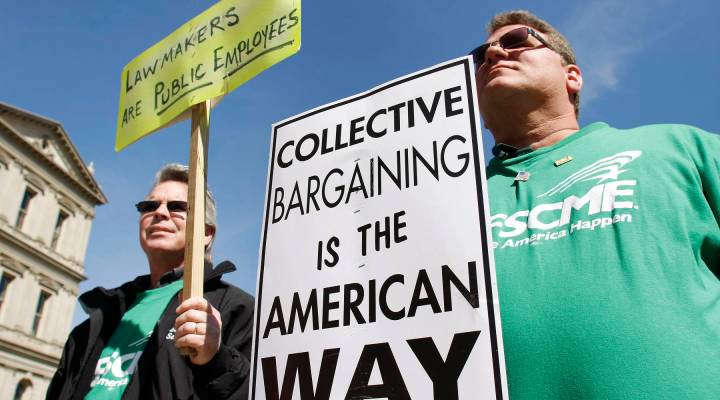
Why labor unions keep shrinking

This week, Democratic presidential hopeful Bernie Sanders unveiled a plan to double membership in unions by making it easier for workers to organize. Several other Democratic candidates are promising policies to revive labor unions, too. Union membership has declined dramatically over the past several decades in the United States, from a high of about one-third of workers in the postwar era to just 6% today. The bulk of those losses have been seen in private sector unions.
A new report from the Brookings Institution explores what’s contributed to the decline and how unions’ diminishing power affects all workers. Union members earn 15% to 20% more than equivalent workers at nonunion shops, and as membership has shrunk, wage growth for low- and middle-rung workers has stalled and income inequality has grown.
Click the audio player above to hear the full story.
There’s a lot happening in the world. Through it all, Marketplace is here for you.
You rely on Marketplace to break down the world’s events and tell you how it affects you in a fact-based, approachable way. We rely on your financial support to keep making that possible.
Your donation today powers the independent journalism that you rely on. For just $5/month, you can help sustain Marketplace so we can keep reporting on the things that matter to you.












